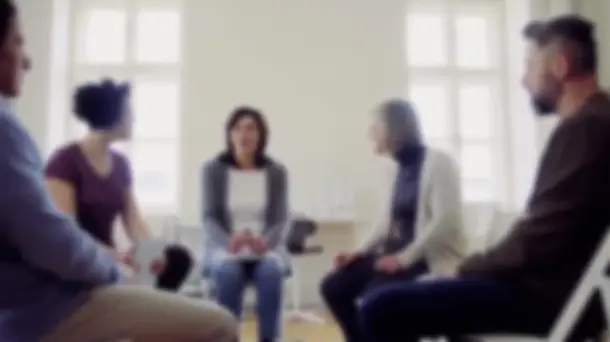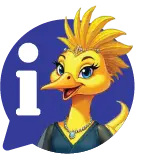Welcome to Narcotics Anonymous
What is our message? The message is that an addict, any addict, can stop using drugs, lose the desire to use, and find a new way to live. Our message is hope and the promise is freedom.

“When new members come to meetings, our sole interest is in their desire for freedom from active addiction and how we can be of help.”
It Works: How and Why, “Third Tradition”
Is NA for me?
This is a question every potential member must answer for themselves. Here are some recommended resources that may be helpful:
Need help for family or a friend?
NA meetings are run by and for addicts. If you're looking for help for a loved one, you can contact Narcotics Anonymous near you.
Subscribe to NAWS Emails
Sign up to receive Just for Today and SPAD daily meditation emails, as well as NAWS News, NAWS Updates, and more.
Never before have so many clean addicts, of their own choice and in free society, been able to meet where they please, to maintain their recovery in complete creative freedom.
Basic Text, “We Do Recover”
Recovery Quicklinks:
Service Quicklinks:
Narcotics Anonymous sprang from the Alcoholics Anonymous Program of the late 1940s, with meetings first emerging in the Los Angeles area of California, USA, in the early Fifties. The NA program started as a small US movement that has grown into one of the world's oldest and largest organizations of its type.
Today, Narcotics Anonymous is well established throughout much of the Americas, Western Europe, Australia, and New Zealand. Newly formed groups and NA communities are now scattered throughout the Indian subcontinent, Africa, East Asia, the Middle East, and Eastern Europe. Narcotics Anonymous books and information pamphlets are currently available in 49 languages.
Information About NA
Daily Meditations
Just for Today
June 08, 2025 |
The only requirement |
| Page 166 |
| “This program offers hope. All you have to bring with you is the desire to stop using and the willingness to try this new way of life.“ |
| IP No. 16, “For the Newcomer” |
| From time to time we wonder if we're “doing it right” in Narcotics Anonymous. Are we attending enough meetings? Are we using our sponsor, or working the steps, or speaking, or reading, or living the “right” way? We value the fellowship of recovering addicts–we don't know what we'd do without it. What if the way we're practicing our program is “wrong”? Does that make us “bad” NA members? We can settle our insecurities by reviewing our Third tradition, which assures us that “the only requirement for membership is a desire to stop using.” There aren't any rules that say we've got to attend this many meetings or these particular meetings, or work the “steps” this way at this pace, or live our lives to suit these people in order to remain NA members in good standing. It's true that, if we want the kind of recovery we see in members we respect, we'll want to practice the kind of program that's made their recovery possible. But NA is a fellowship of freedom; we work the program the best way for us, not for someone else. The only requirement for membership is a desire to stop using. |
| Just for Today: I will look at the program I'm working in light of my own recovery. I will practice that program to the best of my ability. |
A Spiritual Principle a Day
June 08, 2025 |
Anonymity Connects Us |
| Page 165 |
| “. . . addiction makes us one of a kind. Our personal stories may vary in individual pattern but in the end we all have the same thing in common. This common illness or disorder is addiction.“ |
| Basic Text, Chapter 8: We Do Recover |
| By the time most of us show up at our first few Narcotics Anonymous meetings, we are pros when it comes to the difference game. Within moments of meeting someone new, we can fire off a list of ways that we are both better and worse than they are, ways in which their opinions, concerns, and experiences have no bearing whatsoever on our own lives and problems. But something strange happens to most of us when we sit through an NA meeting. Whether it happens right away or after months or years, we look around at a room full of people who are nothing like us, and we begin to realize that we are sitting in a room full of people who are exactly like us. We might not even realize it at the time, but anonymity is what flips that switch. Addiction comes with its own strain of terror and desperation that we recognize when we hear each other share. We suffer the pain of wanting to stop using but not knowing how, of wanting to stop disappointing the people in our lives but seeing no other choice, of wanting to stop waking up disappointed in ourselves–again!–and yet, here we are, sick and tired of being tired and sick. We hear our fellow addicts share these experiences, experiences we know so well, and we know we're in the right place. For some of us, connecting to NA members on the level of pain and suffering is the first time in a long, long time that we have felt any connection to other people. But it doesn't stop there! First, we have only addiction in common, but when we stay and work the program, we soon have recovery in common, too. When we practice anonymity, we are able to have greater empathy and compassion for those around us. We see our sameness. Our sense of connection with other NA members keeps growing. We meet members from other areas, cities, and countries–they share differently, but the message is the same. We have never met, but we know each other intimately. Such is the blessing of being an addict in recovery–anonymity connects us all. |
| ——— ——— ——— ——— ——— |
| Addiction separates me from other people and from myself. To reconnect, I will acknowledge what I have in common with other recovering addicts today and reach out to them. |
Do you need help with a drug problem?
“If you’re new to NA or planning to go to a Narcotics Anonymous meeting for the first time, it might be nice to know a little bit about what happens in our meetings. The information here is meant to give you an understanding of what we do when we come together to share recovery…”
Subscribe to NAWS Emails
Sign up to receive NAWS Updates and NAWS News emails as well as Just for Today and SPAD daily emails.




